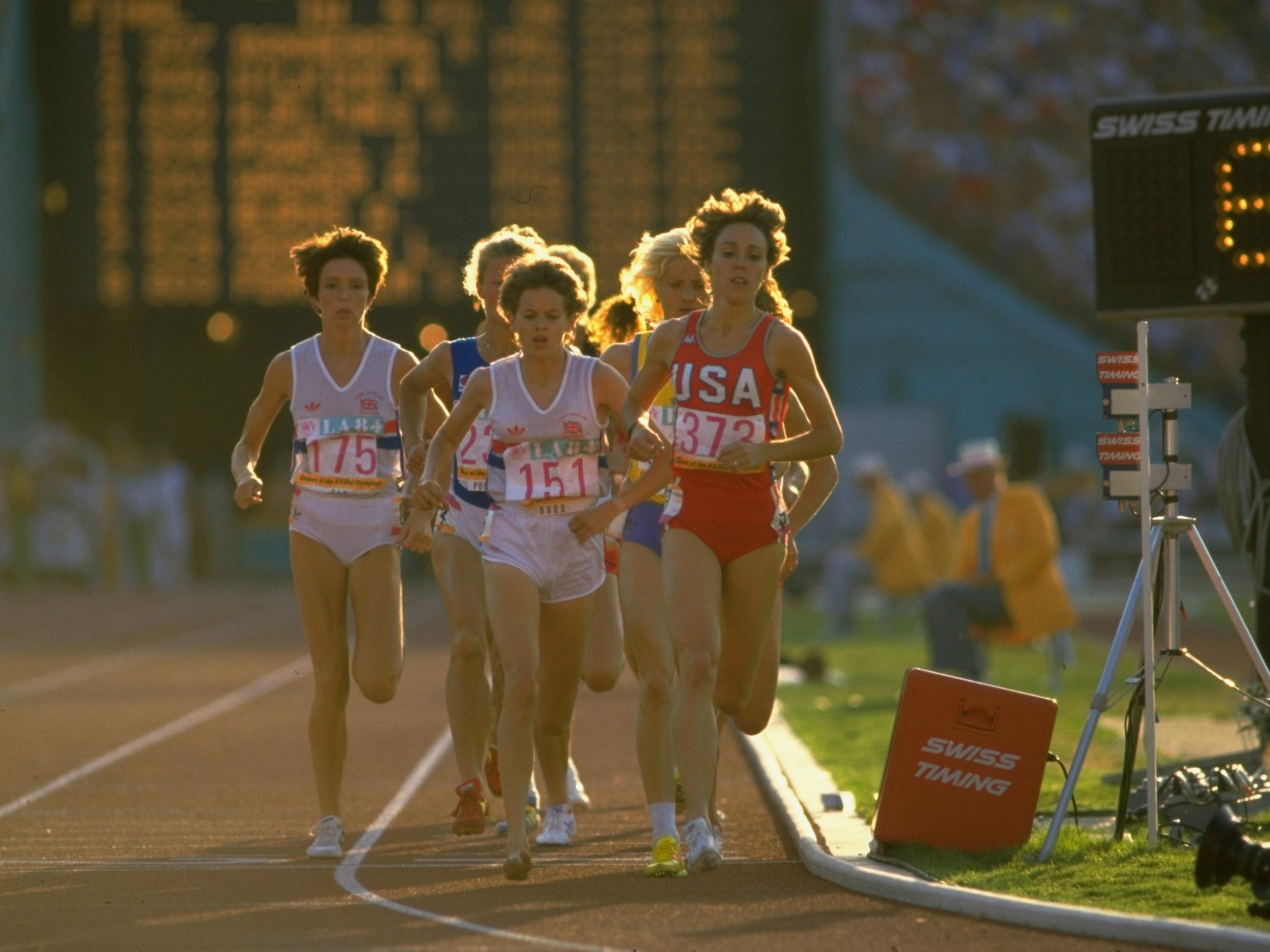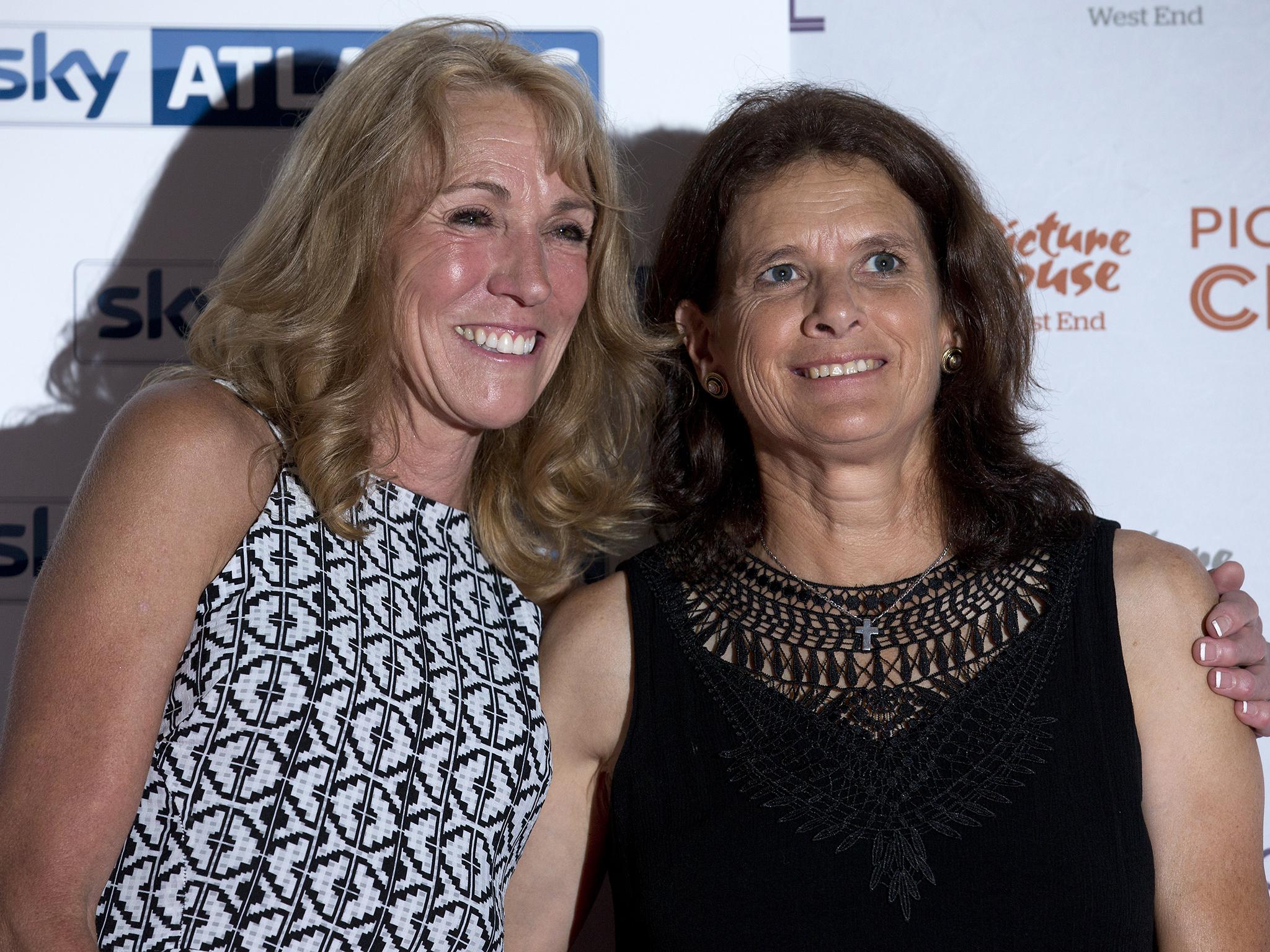Great Olympic Friendships: Zola Budd, Mark Decker, a catastrophic collision and the reconciliation that followed
'I never blamed running, I blamed people,' Budd said

If ever there was a moment tailored to sow enmity, it occurred at the Los Angeles Coliseum on 11 August 1984. Ali and Frazier, Prost and Senna, Connors and McEnroe..… Zola Budd and Mary Decker were perfect candidates to be added to that list of enduring sporting rivalries – except that theirs has an almost happy ending.
That afternoon 32 years ago reconciliation seemed impossible - destinies entwined in tabloid heaven that had suddenly been shattered. Decker was the home town girl, the pretty southern Californian who may have been America’s greatest ever female middle distance runner. In 1982 alone she set no less than six world records, and the following year pulled off the ‘Double Decker’, victories at 1,500m and 3,000m in the Helsinki world championships.
But the supreme prize, an Olympic title, had always eluded her. In 1972 she was too young. Injury kept her out of the Montreal summer games in 1976, and America’s boycott prevented her from going to Moscow in 1980. But 1984, when her most dangerous East bloc rivals were missing because of a tit-for-tat Soviet boycott, appeared the perfect opportunity.
There was just one obstacle: a waif-like, 18-year-old sensation from Bloemfontein called Zola Budd, who ran barefoot and had shattered the world 5,000m record the previous January. The mark however was not ratified because of international athletics’ ban on apartheid South Africa – but that only whetted the world’s appetite for a match-up.
The problem was solved by the Daily Mail, which pressured Margaret Thatcher’s government into granting Budd, who had a British grandfather, a UK passport. The paper then paid Budd (or rather her rapacious father) £100,000 for the exclusive rights to her story. She duly won a place in Britain’s Olympic team, and the dream race with Decker was on.
Alas, no one was less prepared for this publicity ordeal than Budd. In Britain she was desperately homesick. She was shy and unworldly, seemingly unaware of the pariah status of the her native country. She claimed never to have heard of Nelson Mandela and you could almost believe her. But that did not stop her being booed and heckled by British crowds at pre-Olympic appearances.
Thus was everything set up for a showdown before 90,000 spectators at the Coliseum, almost every one of them willing Decker to an expected triumph. Instead what happened, four minutes and 57 seconds into the race, was a nightmare – for both.
In the fourth lap, with the front of the field bunched as it came off the turn, the legs of Decker and Budd got into a tangle. The American tripped and crashed onto the grass, clutching her hip in agony. Briefly Budd was alone in the lead, but she fell back to finish a distant seventh, as the boos of the crowd rang in her ears.
In the tunnel afterwards, she tried to apologise. “Don’t bother,” replied Decker, claiming her opponent had been trying to cut in. The Budd camp maintained it was Decker who was responsible, trying to sneak through on the inside, when no gap existed. Immediately after the race, Budd was disqualified for obstruction, but quickly re-instated. It was, as replays from every angle show, an accident.
Within 24 hours, Decker’s temper was cooling. Contrary to rumour, no confrontation had taken place between the two beforehand, she told an interviewer. “I blame her”, but what happened was due to “inexperience on her part”. She and Budd had been under fierce pressure from the media. Her fall was the result of “an unfortunate situation I could not control”.
Budd was no less devastated. “After the fall, my immediate feeling was that I shouldn’t go on with race, I just wanted to get on the plane and go home,” she said years later. She had, she explained, deliberately slowed down to avoid appearing on the medal rostrum and being jeered and abused by a crowd that would have happily seen her dead.

Meanwhile, two careers had been convulsed. In 1985 a rematch was staged at Crystal Palace in London, which Decker won easly, as Budd fell away to finish a distant fourth. Thereafter relations between them slowly began to thaw. Decker, according to Budd, still blamed her for the incident, but had forgiven her.
Real reconciliation however would have to wait until this year and 'The Fall', a Sky Atlantic documentary about that fateful day in August 1984. In it Decker and Budd revealed and realised how much they had in common, from turbulent private lives and media overkill to a sheer passion for running, for its own sake, as an escape.
“I never blamed running, I blamed people,” says Budd. Most important, they have stopped blaming each other. At the end of the film, the two meet for the first time in decades and jog a lap of the Los Angeles stadium, itself too starting to show its age. A couple of women in their 50s, who could have been old friends, as if at that very place 32 years ago nothing had happened at all.
Join our commenting forum
Join thought-provoking conversations, follow other Independent readers and see their replies
Comments
Bookmark popover
Removed from bookmarks